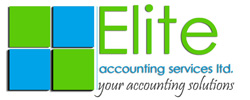The Kenya Revenue Authority (KRA) has unveiled a robust new system to enforce tax compliance for government suppliers, focusing on VAT monitoring, procurement transparency, and financial accountability. This digital initiative is a major step toward strengthening tax enforcement and fairness in public procurement.
Why Is KRA Monitoring Government Suppliers for VAT and Tax Compliance?
In the past, ensuring that all government suppliers paid their fair share of taxes has been a challenge. The KRA has identified instances of tax evasion, including the use of fake invoices or failure to properly remit taxes that were meant to be withheld. These issues not only cost the country valuable revenue but also create an uneven playing field for honest businesses. This new VAT and compliance monitoring system aims to close those gaps.
How Will the KRA Tax Monitoring System Work?
Starting July 2025, KRA will integrate its tax systems with the government’s electronic procurement (e-GP) system, giving it real-time visibility into transactions between the government and suppliers.
Real-time VAT and Tax Monitoring
Unlike before, where tax checks happened after payments were made, this new system allows the KRA to monitor supplier payments and tax obligations in real-time.
Bank Account Integration for Financial Transparency
The upgraded e-GP system will link directly with commercial banks. This means the KRA can access bank account transactions of suppliers to verify their financial capacity and ensure tax compliance.
Instant Tax Checks During Bidding
During the bidding process for government tenders, evaluation committees will have direct access to accurate financial and tax data. This will help them quickly identify and filter out companies that are not tax compliant or those that might be inflating their financial standing to win contracts.
Data Linkage Across Government Platforms
This system will also integrate with other government financial systems like the Integrated Financial Management Information System (IFMIS) and KRA’s iTax platform. This comprehensive linking of data will allow the KRA to easily track procurement payments and verify tax filing history and payment records.
What This Means for Your Business as a Government Supplier
If your business supplies goods or services to the government, this new KRA system will bring increased scrutiny on your tax compliance and financial reporting.
-
Heightened Tax Oversight: Expect a higher level of oversight on your transactions with government entities.
-
Maintain Accurate VAT and Financial Records: Keeping precise and up-to-date financial records is more important than ever. Any discrepancies between your bank transactions and declared income could raise red flags with the KRA.
-
Timely Tax Filing Is Critical: Proactive and timely submission of all tax returns and payments will be crucial to avoid issues during tender evaluations.
-
Anti-Evasion Tools in Place: The system is specifically designed to detect and deter tax evasion, including the use of front companies or financial misrepresentation.
The Bigger Picture: Digitisation and Fairness in Procurement
This move by the KRA is part of a broader push towards digitalising tax administration and improving transparency in public procurement. By cracking down on tax evasion and fraudulent activities, the goal is to ensure that public funds are spent responsibly and that businesses contribute fairly to the national economy.
